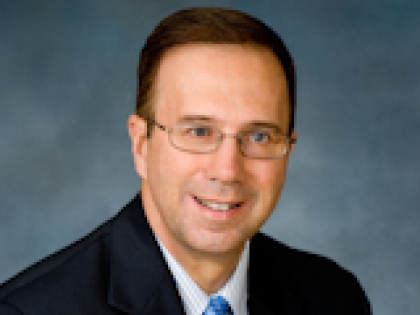
Griffo, Smullen, Miller and Buttenschon call for CHIPS funding to be restored in budget
February 15, 2024
-
ISSUE:
- CHIPS
At a news conference today with area highway superintendents, New York State Sen. Joseph Griffo, R-C-Rome, Assemblyman Robert Smullen, R-C-Meco, Assemblyman Brian Miller, R-C-New Hartford, and Assemblywoman Marianne Buttenschon, D-C-Marcy, called on the governor to restore funding in the state budget that will help local governments maintain and improve infrastructure.
The governor’s proposed state budget calls for the continuation of valuable programs such as the Consolidated Local Street and Highway Improvement Program (CHIPS), Extreme Winter Recovery (EWR), Pave our Potholes (POP) and PAVE-NY.
However, it would decrease funding for CHIPS by $60 million and cut $40 million from the State Touring Routes Program (STR), which helps municipalities maintain, construct and repair highways, bridges, highway-railroad crossings and other transportation facilities.
The cuts to CHIPS and STR have been proposed at a time when many local governments in the state are facing challenges addressing infrastructure-related issues.
According to a report by the American Society of Engineers, half of New York’s roads are in fair or poor condition while 10% of its bridges are in poor condition.
TRIP, a national transportation advocacy group, indicates that, due to inadequate state and local funding, 43% of major locally and state-maintained roads and highways in New York are in poor or mediocre condition. Driving on rough roads costs the average New York driver $715 annually in additional vehicle operating costs – a total of $8.7 billion statewide.
“CHIPS and infrastructure funding in the state budget help communities make critical investments in their roads, bridges, dams, culverts and underground utilities,” said Sen. Griffo. “Making cuts to these programs mean that it will be more difficult to maintain, repair and enhance our infrastructure, which continues to deteriorate. As a member of the Senate’s Transportation Committee, I will continue to be a strong voice for the local governments I represent and for parity to ensure that upstate cities, towns and villages are treated fairly and get the resources they need to address concerns.”
“As a strong advocate for rural equity and the needs of residents living in upstate New York, it’s very important to me that our highway workers are supported and our roads are properly maintained—both these goals require necessary funding from the state budget,” said Assemblyman Smullen. “While the Metropolitan Transportation Authority (MTA) requires funding for reliably transporting urban residents on a daily basis, the needs of rural commuters and first responders cannot be neglected in upstate regions. Tax dollars and funding from the state need to be directed to important programs like BRIDGE-NY to reduce risk of flooding in communities, PAVE-NY to support the rehabilitation of local highways and roads, and Extreme Weather Recovery (EWR) to properly prepare for harsh winter weather. I will continue to work alongside our highway superintendents and local leaders to advocate for proper CHIPS and infrastructure funding our communities need and deserve.”
“As a former town supervisor and current member of the Assembly’s Committee on Transportation, I fully understand the impact and importance that Consolidated Local Street and Highway Improvement Program (CHIPS) and other transportation funding streams have on local governments,” said Assemblyman Miller. “I implore the Governor to increase the funding for CHIPS and the State Touring Routes Program (STR), as local roads are a chief responsibility of a state. I cannot emphasize enough the crucial role of prioritizing local roads, and the need for the state budget to accurately reflect the inflationary and aging infrastructure challenges faced by municipalities in constructing and maintaining roads, bridges and other transportation infrastructure.”
“The governor is proposing an overall $100 million decrease in funding for our highway departments,” said Assemblywoman Buttenschon. “Each highway superintendent is facing the challenges that all departments are encountering, diminishing workforce, supply chain backlogs, regulations, and general maintenance. For the highway departments to function they rely on state funding. This is not a time to decrease their much-needed funding as they plan on much-needed infrastructure replacement and repairs.”